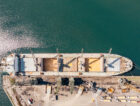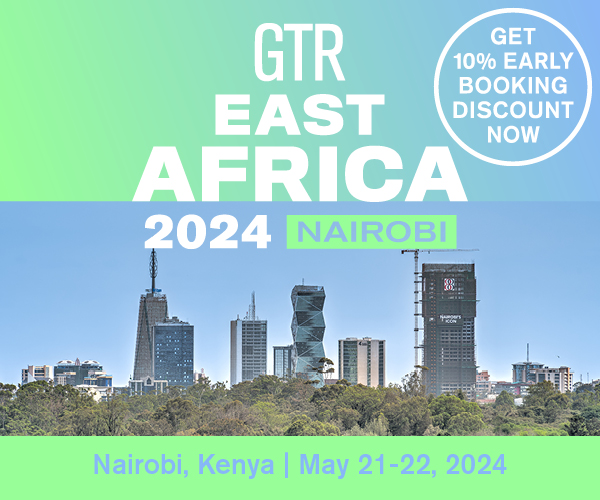
The growth of Islamic trade finance is creating new market opportunities for European players. Sanne Wass reports.
Islamic finance has been around for no less than 1,400 years, but is nevertheless a concept that continues to draw new attention from all around the world.
In a recent report, Moody’s predicts that Islamic financing assets will grow at 7% this year, thus continuing to outpace conventional counterparts.
Put simply, Islamic financial products comply with sharia – Islamic law – and are based on the principles of risk and profit sharing. Sharia prohibits earning interest on loans and bars funding activities involving alcohol, pork or gambling.
These ideas are not just appealing to Muslim-majority countries: Moody’s also expects a stronger offer for Islamic financial products in Europe, particularly in the UK.
The credit rating agency’s forecast reflects the fact that Islamic finance “remains under-represented in the global financial system”, while “demand for sharia-compliant financial instruments is rising”.
It is a development that is being followed closely by the world’s leading insurance centre: London.
Speaking at an industry event in November, Vincent Vandendael, Lloyd’s of London’s chief commercial officer, said he is seeing a “surging demand” for specialist insurance in the Middle East, including sharia-compliant insurance, an area where Lloyd’s is looking closely at how it can “support the growth of this segment”.
Rapidly expanding economies, a complex regional geopolitical landscape, huge infrastructure investments and increasingly structured public-private initiatives are all driving this demand, he said.
“As the Middle East develops, there is a significant requirement for innovative insurance solutions to support economic growth. We see lines such as trade credit, political risk, public-private finance initiatives, warranties and indemnities and mining as a growth opportunity as the regional economies diversify and require increasingly sophisticated risk transfer mechanisms,” he noted.
London insurers enter the market
Some London players are already starting to meet the demand for policies from financial institutions run on Islamic principles. The Islamic Insurance Association of London (IIAL), for example, was formed in 2015 as a representative body to support the work of those in the UK insurance markets transacting Islamic finance and help more firms tap into the “rapid growth” of Islamic risk.
“The supply of commercial sharia-compliant insurance products does not even come close to matching the potential demand from the Islamic finance industry,” said Dave Matcham, executive committee member of the association, at the World Takaful Summit in Dubai in April.
Richard Bishop, a London-based insurance broker who specialises in sharia-compliant solutions, also points to insurance specifically as an area where there has been a “significant lack of Islamic products”.
“The London market has been very slow in picking up the opportunity to structure products in a sharia-compliant way, which the banks have been doing for many years,” he tells GTR. “It’s been taking a little while to get the insurers, who are very slow to adapt and come up with new ideas, to accept that there’s a really big opportunity here.”
Bishop started focusing on this specific type of insurance 10 years ago, when he was asked by an Islamic bank for a sharia-compliant product. Back then, he says, “it wasn’t just a matter of walking down the road and asking an insurer if they would do it”.
As such, he has since been working closely with market players to educate and encourage them to think of the opportunities in this space.
The market has come some way since then. In 2012, Bishop co-founded Cobalt Insurance Holdings, which provides specialist sharia-compliant products and services. One year later, the firm, together with XL Insurance, introduced its first sharia-compliant product for a contractors’ all risks and property owners insurance. In February 2016, it launched the first Lloyd’s-backed product for a political violence facility with capacity provided by Chaucer Syndicates. And in late 2016, Cobalt received ‘in principle approval’ from Lloyd’s Franchise Board to become a fully sharia-compliant syndicate.
Over the years, Bishop has helped firms develop sharia-compliant products in a range of other classes, including financial institution D&O, civil liability and commercial crime and commercial property and business interruption, which have involved the likes of AIG, AXA and Atrium.
According to Matcham of the Islamic Insurance Association of London, the London market now has up to 10 commercial insurers offering sharia-compliant products.
But it’s just the beginning. According to an estimate by AIG in October last year, sharia-compliant insurance accounts for only around 2% of the £1.4tn Islamic finance market.
It’s within trade credit and political risk insurance that Bishop sees particular opportunities. He recently joined Parker Norfolk and Partners, a Lloyd’s of London-registered broker, as a director of financial and trade credit risks, where he will specifically focus on developing Islamic trade credit products to meet the demand from banks, and, in his own words, “help open the opportunities out into the Middle East, Africa, Southeast Asia, even non-Muslim areas”.
“The important thing for the insurance market is to be able to say ‘we have a solution’. In the past, it hasn’t. That has been a failure of the market to address a need,” he says.
He adds that while a number of insurers are interested, so far London has yet to complete a contract for sharia-compliant trade credit insurance. “I expect many of the Lloyd’s syndicates who have been involved in other classes, plus the likes of AIG and AXA, to be very interested in providing the solutions we seek,” he says.
The Islamic trade finance boom
For banks operating in the Islamic trade finance space, the move being made by insurers is much welcomed. Ahsan Ali is global head of Islamic origination at Standard Chartered, one of the leading international banks offering sharia-compliant financial solutions. When asked about the key opportunities for his bank’s Islamic business that have emerged over the past year, he specifically points to the “willingness of multilateral development institutions, export credit agencies (ECAs) and global insurance providers to consider Islamic structured facilities for their guarantee and risk cover programmes”.
“As the insurance providers get comfortable with Islamic structures, it will open up another risk mitigation and distribution avenue for banks, which will allow them to book more Islamic business and hence expand the Islamic finance market – both in terms of size of deals as well as credit grade spectrum,” he says, adding that Standard Chartered has also started working with a few Lloyd’s of London insurers in this capacity.
His comments are echoed by Haytham Elmaayergi, global head of transaction banking at Abu Dhabi Islamic Bank. “It is opening an area for us in the future,” he says about the rising activity from the insurance market. He adds that even European ECAs are looking to expand their business to encompass Islamic structures. “It’s at a very early stage, and even for us, we’re still working on these structures. We are seeing them being more and more interested, because it opens more business.”
Among European ECAs looking closer at Islamic structures is Euler Hermes, which now offers sharia-compliant trade credit insurance through GCC takaful companies to cover non-payment risks relating to trade receivables.
Another ECA mentioned as a potentially important player in this space is UKEF. It was part of one of the most prominent Islamic deals done by a conventional ECA in recent years when in 2015 it guaranteed a sukuk (an Islamic bond) issued by Emirates Airline to finance the purchase of an Airbus A380 aircraft.
We may well see many more of these types of deals in the future, especially as the Middle Eastern governments implement efforts to diversify their economies.
“This is the fastest growing piece on the market now,” Elmaayergi says. “Islamic finance is today maybe 2-3% of the global market, but it should be growing if you look at the percentage of Muslims around the world. So while conventional banks might struggle to grow their trade portfolio, Islamic banking has a lot of space to grow in.”
Krishnakumar Duraiswamy, head of trade finance at Abu Dhabi Commercial Bank (ADCB), also expects growth in Islamic trade finance specifically, saying this is partly driven by the fact that banks in the region now offer a much wider range of Islamic trade products than they did just a year ago.
“The Islamic products now have an ability to cover all working capital needs,” he says. “So today there is not much difference between conventional and Islamic working capital financing product availability. Purchase, receivable, inventory financing: you can do the same under the Islamic structure.”
While ADCB is mainly focused on financing conventional trade, its Islamic trade flows have increased in the last two to three years, and so too has its Islamic trade finance offering.
As a result, the bankers interviewed for this article are generally seeing a rise in the amount of new companies now tapping into Islamic trade finance products as a new means of funding. “A lot of conventional customers have started shifting to Islamic finance due to institutional requirements for adherence to sharia principles,” Duraiswamy says.
“There are many corporates and government-linked companies, especially in the GCC and Southeast Asia, which are looking to progressively shift their banking facilities to sharia-compliant formats driven by promoter or sponsor preference – as long as product availability and service levels are on par with what they enjoy in the conventional space,” adds Ali at Standard Chartered.
However, the sector will still face challenges in reaching its full potential. One obstacle standing in the way is the lack of standardisation, according to a recent note by Fitch Ratings. Currently, different jurisdictions interpret sharia differently and there is also variation in how Islamic finance products are structured. Differences in how disputes are resolved and reporting standards are monitored add to the complexity.
Some action is already being taken in the trade finance sector to address this particular challenge. In February, for example, the Bankers Association for Finance and Trade (Baft) and International Islamic Financial Market (IIFM) announced they were working together to create a master risk participation agreement for Islamic trade finance.
In line with Moody’s, predictions, Bishop of Parker Norfolk also expects a “steady growth” for Islamic insurance, and is hopeful that, as the number of participants increases, the cost of Islamic finance will ultimately be driven down.
“More activity in the area will reduce the frictional cost associated with Islamic finance,” he says. “And as you see the cost of finance go down, the customers become more interested in it.”











